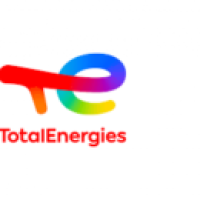The Adventist Development and Relief Agency (ADRA) is the global humanitarian organization of the Seventh-day Adventist Church. Through an international network, ADRA delivers relief and development assistance to individuals in more than 130 countries-regardless of their ethnicity, political affiliation, or religious association. By partnering with communities, organizations, and governments, ADRA is able to improve the quality of life of millions through 9 impact areas.
Summary
- The Gender Officer’s role encompasses supporting women, youth and other vulnerable groups through knowledge and capacity development for enhanced adoption of gender-
- responsive nature-based solutions in targeted landscapes for improved biodiversity and climate change adaptation. The officer will work with women, men, girls and boys, communities, organizations, and other responsibility holders to challenge harmful social norms and barriers that prevent women and girls from practising enhanced climate-resilient livelihoods in targeted landscapes based on the sustainable use of biodiversity.
Specific Tasks (Project Level
- Conducting continuous Gender Assessments to gather essential information about gender dynamics and different needs, priorities, and opportunities among other groups within the target project area.
- Develop, implement and monitor appropriate gender equality strategies that ensure all project interventions and activities are both gender responsive and transformative (e.g. Ensuring that all training conducted under the project adopts and integrates gender- responsive approaches where sensitive topics such as SRH and GBV are taught in sex and age-segregated learning groups and by same-sex facilitators/educators.)
- Support the development of a community gender awareness action plan and follow upon the level of implementation of the plan
- Conducting locally appropriate gender equality training and awareness campaigns.
- Facilitating critical reflection sessions to promote awareness of gender equality and harmful social/cultural norms, constructions of masculinity/femininity, rights, SGBV and SRHR, etc., and to develop skills and attitudes around self-efficacy.
- Facilitating and supervising an evidence-based methodology, Promundo’s Program H&M, which is a gender-synchronized approach to training female champions alongside male champions for the intentional intersection of gender transformative efforts to reach both women and girls as well as men and boys.
- Mapping of Gender-Based Violence (GBV) referral pathways, including GBV response services available in the local community, the process for referring survivors to these services, and gaps in the referral system. This includes:
- Internal Audit of GBV Response and Referral Capacity
- Identifying, mapping and prioritizing GBV services and service providers such as health services (including clinical care for sexual assault survivors), psychosocial support services, child protection, safety/security services (including safe spaces), case management and legal/justice services.
- Identifying gaps in GBV Services, Service Quality, and Accessibility
- Define and communicate the Referral Pathway and GBV Response Process (including developing appropriate messaging on GBV response services to be shared with the larger community).
- Ensuring a Locally-appropriate GBV risk mitigation system is established and functioning in each project location.
Other tasks:
- Provide support in project communication to ensure that all stakeholders are informed on an on-going basis about the project’s objectives and activities, overall project progress, and the opportunities for involvement in various aspects of the project’s implementation.
- Formulate, implement and update the organizational level gender mainstreaming plan, including training project staff on gender and coordinating training on gender for other project stakeholders.
- Conduct engagement activities with local, regional and national stakeholders for policy change and impacts on the ground.
- Perform other duties as deemed relevant to the assignment and advancement of theproject objective by the supervisor
Requirements
Education
- University degree or equivalent in Gender and Development Studies or any other relevant field; – with additional training in gender and development, project management, and communications.
Experience
- At least three (3) years experience in project implementation, focusing on gender equality.
- Extensive experience in assessing and addressing gender-related issues in rural communities in Kenya, including developing and implementing gender equality strategies and action plans.
- A good understanding of the social-economic and environmental dynamics of the ASAL counties of Kenya.










